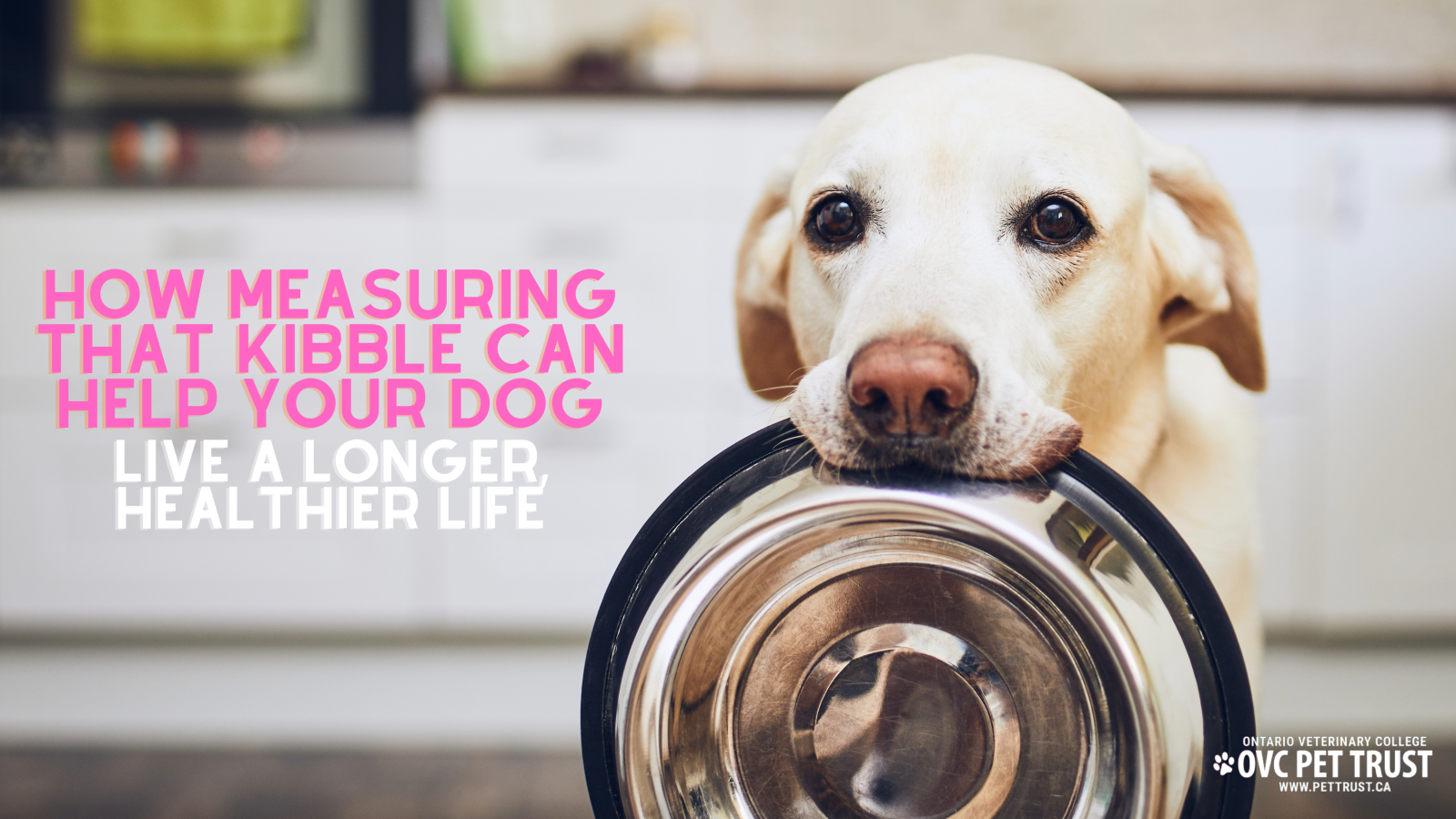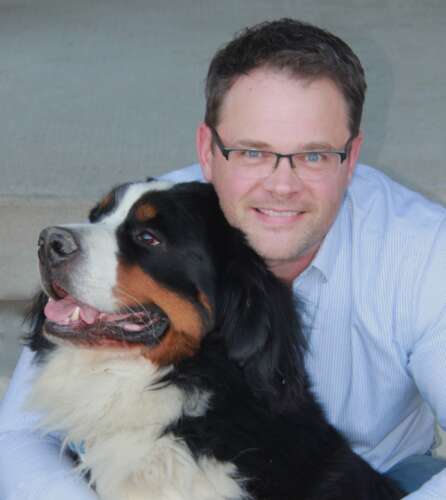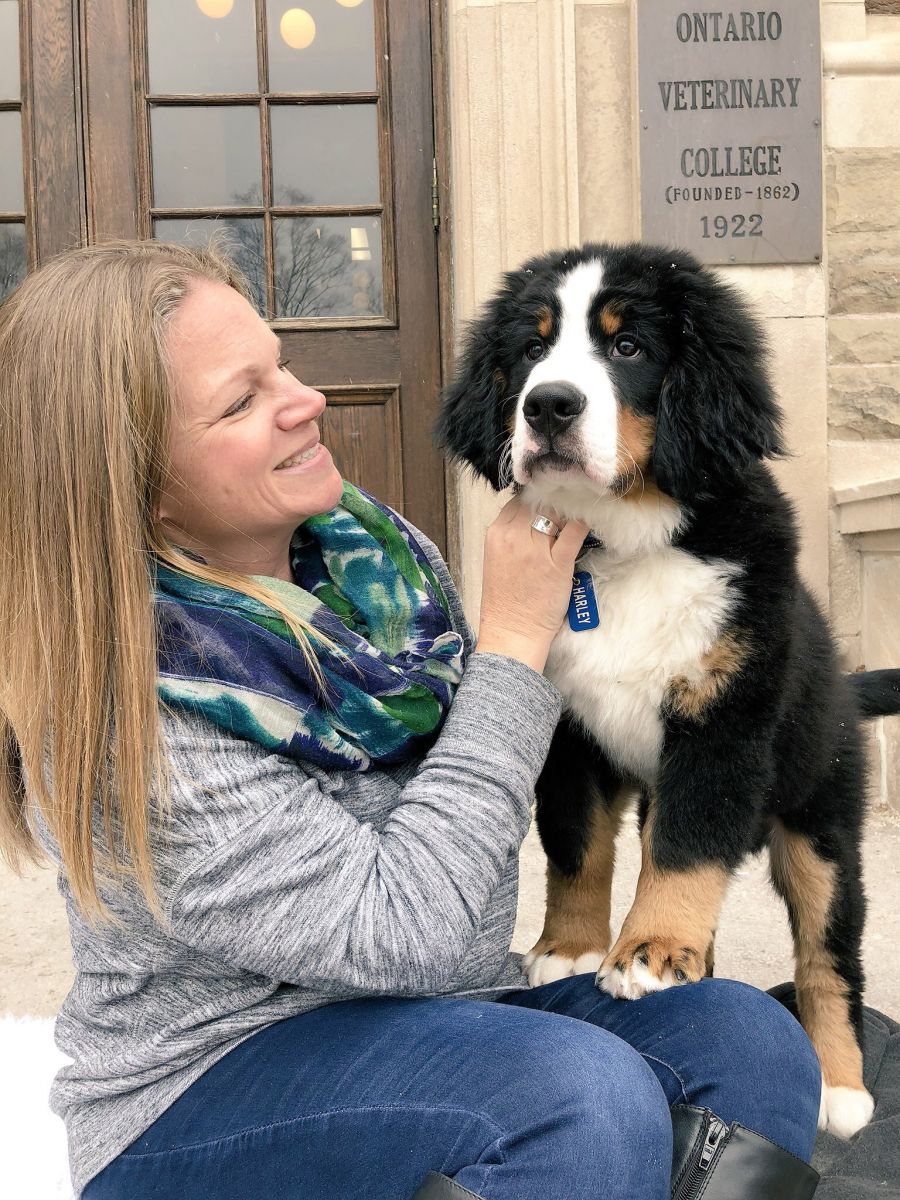Dog owner measurement mistakes may lead to nutritional deficiencies, weight gain or obesity.

A recent study at the University of Guelph’s Ontario Veterinary College (OVC) aims to help pet owners use a practical, hands-on approach to improve the life of their dog.
Led by OVC professor and veterinarian Dr. Jason Coe, the study aimed to determine dog owners’ accuracy when measuring different volumes of dry dog food using certain types of measuring devices: a one-cup dry-food measuring cup; a two-cup graduated-liquid measuring cup; or a two-cup commercial food scoop.
The research team assessed owners’ accuracy with an electronic gram scale, comparing owner-measured volumes with the correct weight in grams.
“Our study results have an extremely practical application for both pet owners and veterinarians,” Coe says, adding that a small change made by the caregiver can have a significant impact on a dog’s quality of life. “We know from research that there are health implications of not having a healthy weight in our companion animals, particularly dogs. Not only does being overweight increase their chances of chronic disease; obesity is a quality-of-life issue that can shorten a pet’s lifespan,” Coe continues.
The good news is, Coe has evidence-based recommendations informed by this study which are easy to implement, may extend your pet’s life and significantly contribute to the overall health and well-being of your animal.

LESSONS LEARNED
Coe’s study results show that individual owner accuracy ranged from -47.83% (underestimation) to +152.17% (overestimation) across devices and volumes. Accuracy was found to be strongly linked to the volume of food measured and the type of measuring device used. It was particularly more difficult for owners to estimate small volumes of food – which may have implications for small dogs.
Coe wants owners to know there’s an easy solution and is hopeful his work will bring more awareness to food measurement.
Photo: Dr. Jason Coe and his dog Harley.
THE BENEFITS OUTWEIGH THE WORK
When measuring pet food, a gram scale is the most accurate measurement system – whether it is electronic or manual. As a pet owner, Coe himself moved to feeding his own dog, a Bernese Mountain dog named Harley, to a gram scale. He admits there was a period of behaviour adaptation to make the change, but now that he’s added it to his daily routine, it’s only a matter of seconds added to his day.
PRO TIP: To save time, Coe measures a full day’s amount of food for Harley and then divides the total into meals and treats.
Coe stresses that inaccurate measurement of kibble by dog owners can have profound implications for the health and well-being of canines; consistent underestimating of food can put dogs at-risk of calorie restriction and nutritional deficiencies. On the other end of the spectrum, overestimation of food measurement, or overfeeding your dog, poses an increased risk for weight gain and obesity.
People who own small dogs should be aware they are even more likely to be measuring inaccurately. Coe advises owners to speak to their veterinarian about how many grams they should be feeding their animal if there is any uncertainty.
Photo: OVC Pet Trust Director Kim Robinson and Dr. Coe's dog Harley as a puppy.
THE WAY FORWARD
Coe has dedicated his career to studying and teaching evidence-based approaches in the areas of veterinary clinical communication and the human-animal bond. He encourages dog owners to reflect on how they are currently determining the amount of food they feed their pet and if there is an opportunity for change.
While more and more manufacturers are providing measurement information on food packaging that is easier for pet owners to understand, Coe stresses that each dog is different and veterinary teams can make sure you are targeting the correct quantity of food for your pet’s individual needs.
Coe’s research continues to pursue studies that aim to benefit pet owners and their animals, including how veterinarians and pet owners approach the conversation of pet obesity.
Dr. Jason Coe is the VCA Canada Chair in Relationship-Centred Veterinary Medicine at the University of Guelph and an OVC Pet Trust-funded researcher.
Read more in spring / summer issue of Best Friends Magazine.


